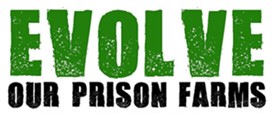Former dairy farmer watches government at work from his cell
Prisoner is appalled by what he see as examples of government largesse
Ontario Farmer [click to view original article], Tue Oct 13 2020, Ian Cumming
 When former dairy farmer Todd Mallen, now a prisoner in the Joyceville Minimum Security facility, looks out over the prison fields where he used to custom plant corn as a youth, the appalling mismanagement and waste of money has spurred him to speak out.
When former dairy farmer Todd Mallen, now a prisoner in the Joyceville Minimum Security facility, looks out over the prison fields where he used to custom plant corn as a youth, the appalling mismanagement and waste of money has spurred him to speak out.
In a Oct. 7 telephone interview from prison with Ontario Farmer, approved by Corrections Services Canada (CSC), Mallen detailed what he is witnessing today, combined with his on-the-ground historic knowledge, having been raised on a dairy farm just 10 km from where he is now sitting.
In 2005 Mallen was arrested and subsequently convicted for murder and, since then, has served time in 10 different facilities in Ontario and Quebec.
He’s received farm publications every week, no matter where he was housed, “and I’ve been hooked on dairy farming since I was a kid on a bus tour and I walked down the row of cows at Hanover Hill,” said Mallen.
In February of this year, “they sent me home” said Mallen, meaning he’s back serving his time in the area where he was born and raised.
His father lives a few minutes away, he was educated at the Joyceville Public School, with five generations of his clan in the area, and Mallen Road is just past the prison gates.
An area farmer is the prison farm manager so “I came back hoping I could help and she was looking forward to hire me,” said Mallen.
However, whether being employed on the farm or in the slaughterhouse, the authorities ruled that his local connections to people coming in and out of the facility could be problematic, so he wasn’t hired.
Mallen named the two area farmers that had rented the livestock facilities, and the arable acres, over the years, until Corrections Canada recently decided it was going to revive the prison farm under government management.
With government money apparently no object, “they bought over $1 million in field equipment to plant 300 acres of soybeans,” said Mallen. In the spring “they only disced one way after last year’s corn, leaving it bumpy as hell, and then they forgot to spray it. The amount of ragweed, I don’t think they can thresh it,” he said.
Ontario Farmer had done a prior article documenting the over $1 million being spent on equipment, and has received independent confirmation from a Kingston-area farmer about the weed problem in the beans.
The part of the soybean crop out of sight of the road, but visible to him, is in even worse shape, said Mallen. With the tile outlets blocked with sediment in the Rideau Conservation system, it doesn’t serve growing a crop well in this black muck, he said.
Government has mandated that the farm adhere to an anti-spray philosophy, combined with following a recent tribunal ruling that sided with environmentalists and has not allowed a creek in the Ottawa area to be cleaned out for tile drains. In all, it has meant crop disasters, said Mallen.
“I told them to plant hay on everything; you’re going to need it for the cows and goats, aren’t you?” When preparing for the livestock, “they’ve put the page wire on their fences upside down,” said Mallen. “There is no construction started on any of the buildings,” whether the tail-to-tail small tie stall cow barn or the larger goat facility, he said.
They are getting research quota for the cows, so isn’t a tie-stall barn out of date, he asked? “They said they didn’t buy any goats this year due to COVID. How is that even remotely related?” asked Mallen.
The 10 prisoners who are working on the farm recently saw their honey, firewood and maple syrup (there are 700 acres of bush) put out on a table in the facility for only prison staff to procure, said Mallen.
When he was housed in Cowansville, Quebec, Mallen had launched a fairly high-profile court challenge of sections 3 (b) and 4 in the Corrections Act, about the “control” that CSC had over their prisoner rights when working, he said.
The case eventually went to the Supreme Court and the ruling sided with CSC, who maintained that what the prisoners were doing was “not jobs, but programs,” said Mallen.
That is the loophole that CSC is using as justification, that they can potentially use prison labour to produce goat milk for Chinese owned processing and export, while at the same time Canada does not allow any imports manufactured with prison labour, said Mallen.
“Perhaps I shouldn’t be speaking out. I don’t care about myself, but they are only going to make it hard on dad the next time he walks in here to visit me. They love to have control.”
Editor’s Note: Two weeks after the publication of this article, Mallen was removed by emergency involuntary transfer out of Joyceville and reclassified to a medium security institution. Access to Information requests filed by Evolve Our Prison Farms prove that this was a direct consequence of Mallen’s interview with Ontario Farmer for this article.
